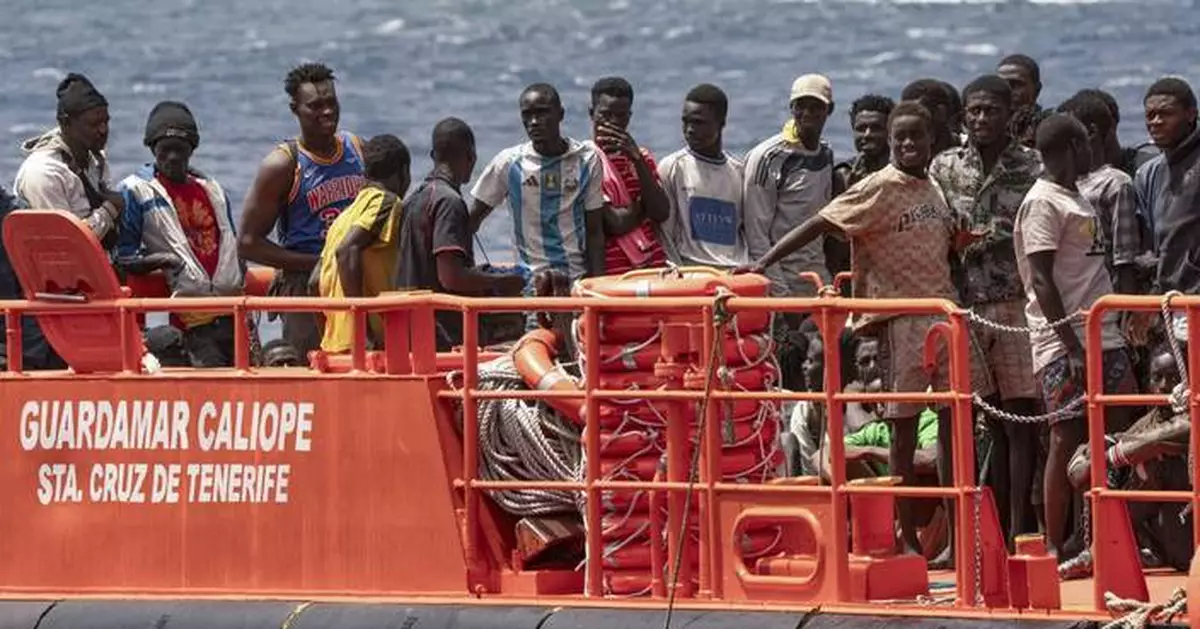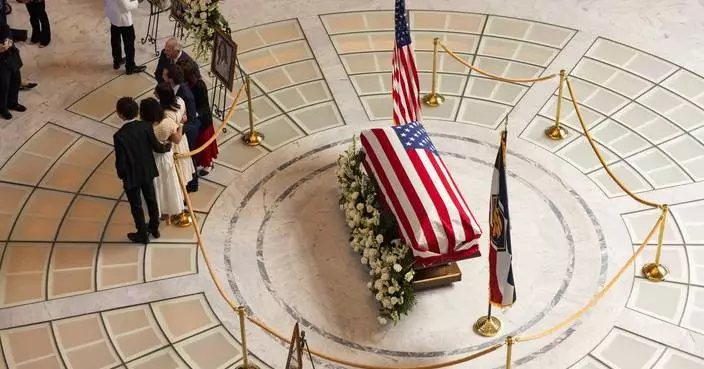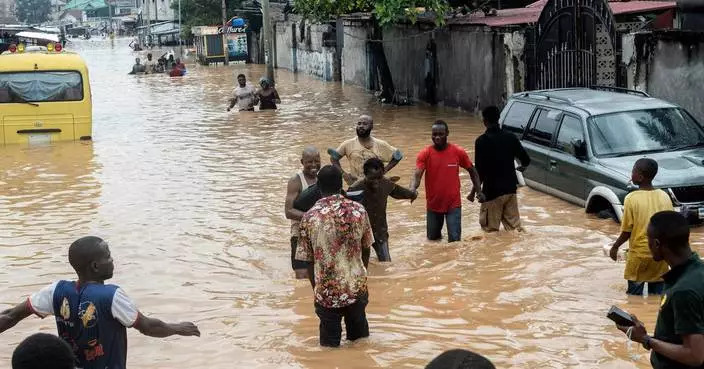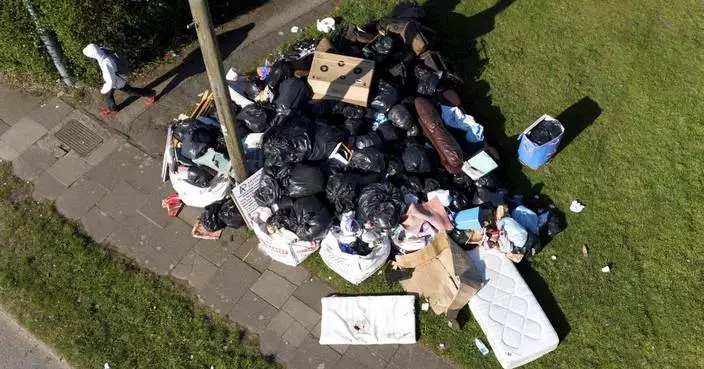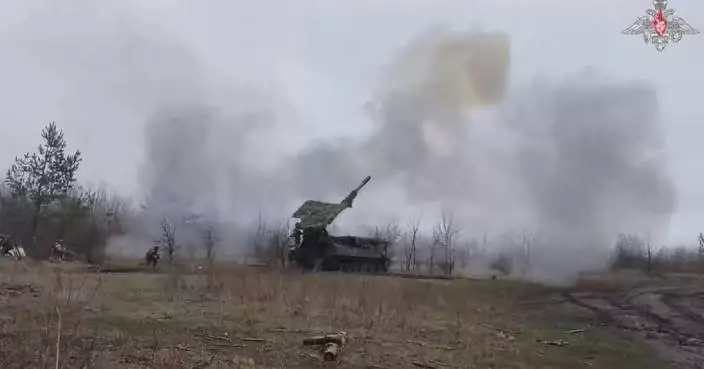WARSAW, Poland (AP) — The number of irregular border crossings into the European Union fell significantly in 2024, according to the bloc's border control agency Frontex, something which it attributed to intensified cooperation against smuggling networks.
The Warsaw-based agency said in a statement that its preliminary data for last year reveal a 38% drop in irregular border crossings into the 27-member bloc.
The data refers to the number of detections of irregular border crossing at the external borders of the EU, not the total number of people who tried to cross. In some cases the same erson may cross the border several times in different locations at the external border, Frontex notes.
The agency said that there were just over 239,000 detections of irregular border crossings, the lowest number registered since 2021, when migration was lower due to the COVID-19 pandemic.
The agency said that despite the overall decrease, challenges persist, including dangerous sea crossings resulting in significant loss of life and the evolving tactics of smuggling networks.
Despite the decrease in irregular arrivals, a sense has taken hold across Europe that there is too much unregulated immigration to the continent.
The issue has dominated political life in Europe since 2015, when more than a million people arrived at once, many fleeing the war in Syria. The issue has boosted far-right parties that strongly oppose accepting large numbers of refugees and migrants — including in places like Austria and Germany.
The decrease in the total number was mainly driven by a 59% plunge in arrivals via the Central Mediterranean route due to fewer departures from Tunisia and Libya, Frontex said. It also reported a 78% fall in detections on the Western Balkan route following efforts in that region to halt arrivals.
At the same time irregular arrivals were up last year along the EU's eastern borders with Belarus.
Frontex also said it recorded an 18% increase in arrivals to the Canary Islands, a Spanish archipelago close to the African coast that is increasingly used as an alternative stepping stone to continental Europe.
It said the nearly 47,000 arrivals it recorded there marked the highest figure since it began collecting data in 2009.
“While 2024 saw a significant reduction in irregular border crossings, it also highlighted emerging risks and shifting dynamics,” Frontex Executive Director Hans Leijtens said.
The Frontex statement noted that authorities have reported increasing violence by smugglers along the Western Balkan route, while growing instability in regions like the Sahel continues to drive migration towards Europe.
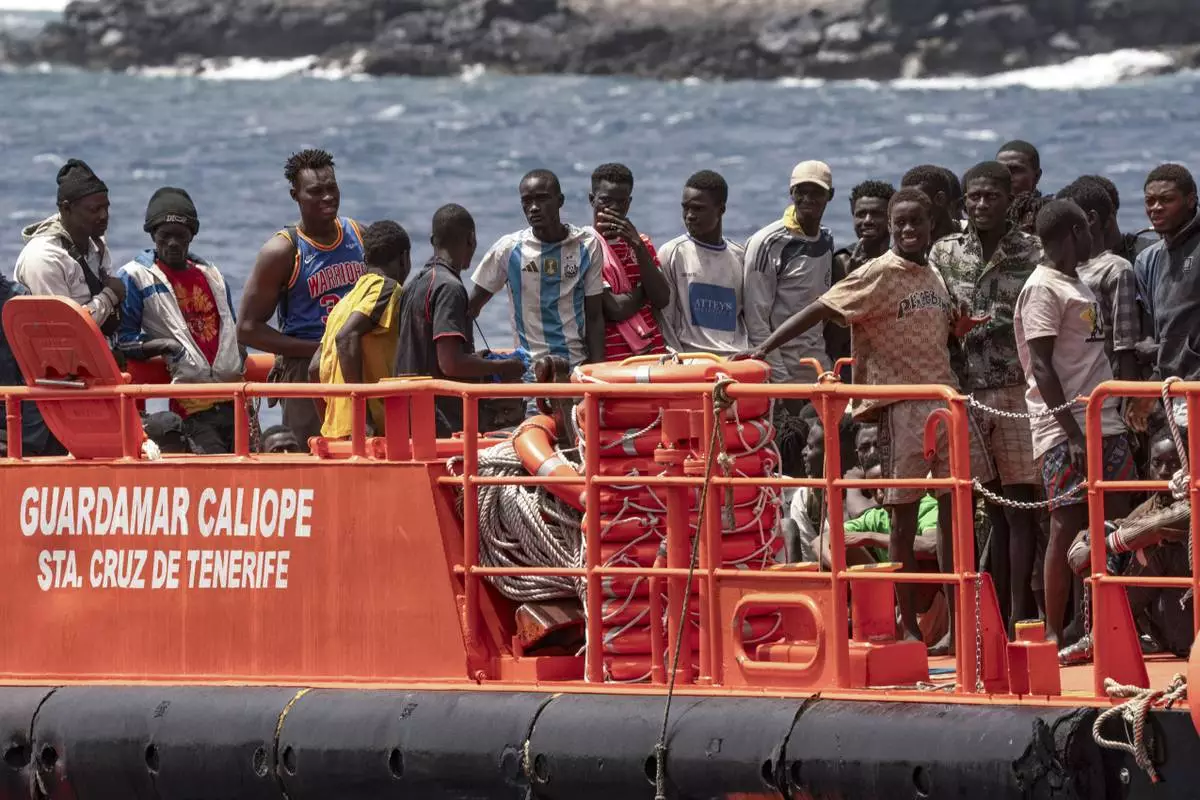
FILE - Migrants disembark at the port of on "La Estaca" in Valverde at the Canary island of El Hierro, Spain, Aug. 26, 2024. (AP Photo/Maria Ximena, file)
The U.S. Conference of Catholic Bishops says it is ending a half-century of partnerships with the federal government to serve refugees and children, saying the “heartbreaking” decision follows the Trump administration’s abrupt halt to funding for refugee resettlement.
The break will inevitably result in fewer services than what Catholic agencies were able to offer in the past to the needy, the bishops said.
“As a national effort, we simply cannot sustain the work on our own at current levels or in current form,” said Archbishop Timothy Broglio, president of the USCCB. “We will work to identify alternative means of support for the people the federal government has already admitted to these programs. We ask your prayers for the many staff and refugees impacted.”
The decision means the bishops won’t be renewing existing agreements with the federal government, the bishops said. The announcement did not say how long current agreements were scheduled to last.
Catholic bishops sued President Donald Trump's administration in February over its abrupt halt to the funding of aid provided to newly arrived refugees, saying they are owed millions already allocated by Congress to carry out resettlement aid under agreement with the federal government.
But a federal judge ruled that he couldn’t order the government to pay money due on a contract, saying a contractual dispute belongs before the Court of Federal Claims. The bishops have appealed that ruling.
Beyond that specific funding dispute is the Trump administration’s halt to all new refugee arrivals. The Catholic bishops oversaw one of 10 national agencies, most of them faith-based, which contracted with the federal government to resettle refugees who come to the U.S. legally after being vetted and approved by the federal government.
Broglio’s announcement didn’t specify what the children’s services program was.
The bishops have overseen Catholic agencies resettling displaced people for a century. In recent decades they had done so in a partnership with the U.S. government, receiving grants that covered much, though not all, of the expenses.
The Trump administration’s “decision to reduce these programs drastically forces us to reconsider the best way to serve the needs of our brothers and sisters seeking safe harbor from violence and persecution,” said Broglio, who heads the Archdiocese for the Military Services, USA.
The announcement did not specify whether the cuts would lead to any layoffs, though Broglio asked for prayers for the “many staff and refugees impacted.”
Vice President JD Vance, a Catholic convert, accused the bishops conference in January of resettling immigrants who are in the U.S. illegally in order to get millions in federal funding — an apparent reference to the resettlement program, which actually involves legally approved refugees.
The bishops noted that rather than making money on the program, they receive less in federal aid than the programs cost and need to supplement the funding with charitable dollars.
Vance followed up his criticisms by appealing to Catholic teaching as justifying immigration restrictions. That drew rejoinders not only from U.S. bishops but an implicit rebuke from Pope Francis, who said Christian charity requires helping those in need, not just those in one’s closest circles.
Associated Press religion coverage receives support through the AP’s collaboration with The Conversation US, with funding from Lilly Endowment Inc. The AP is solely responsible for this content.

Catholic bishops lead a march in solidarity with migrants, Monday, March 24, 2025, in downtown El Paso, Texas. (AP Photo/Andres Leighton)



